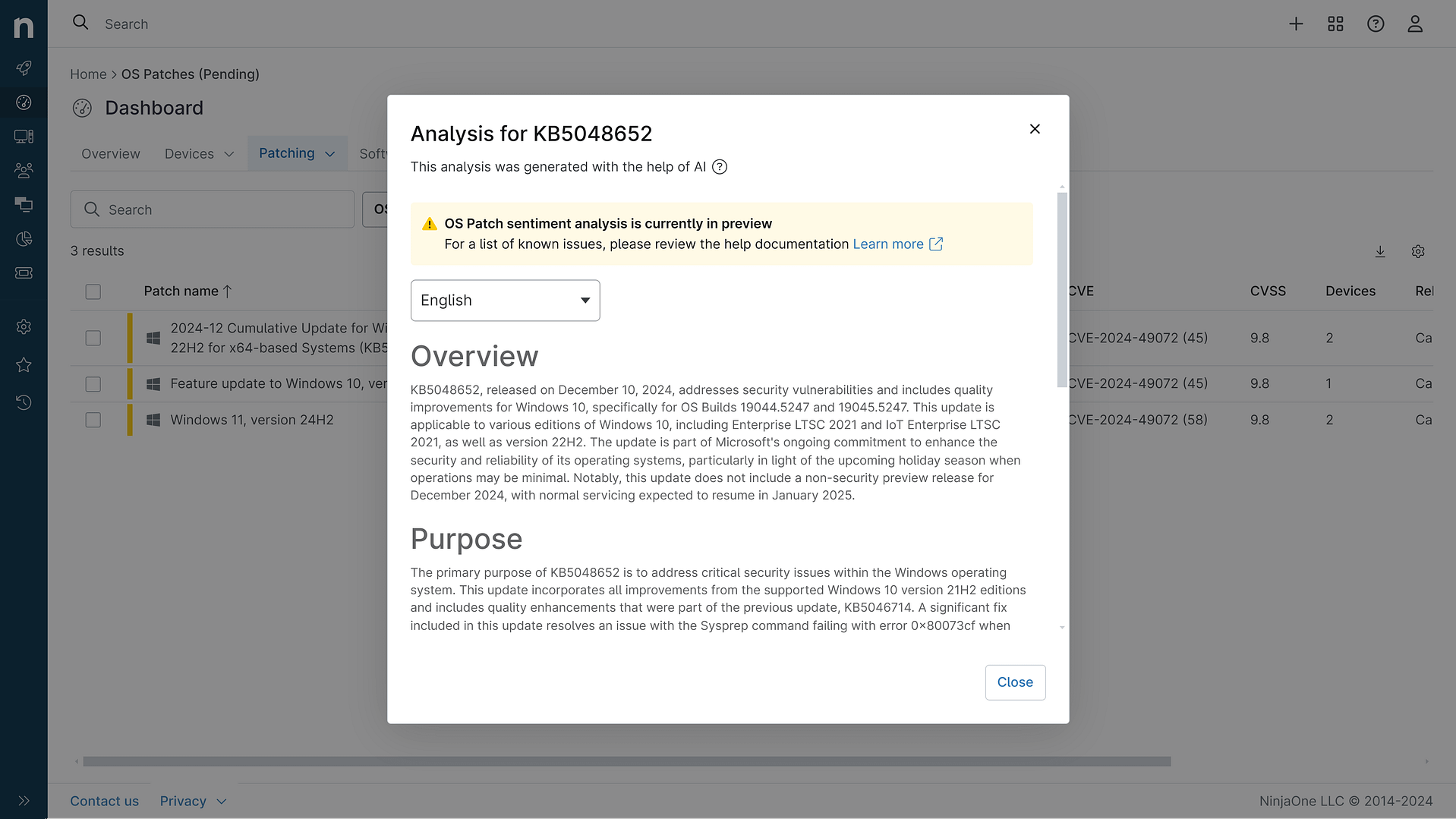KB5046615: Overview with user sentiment and feedback
Last Updated December 31, 2024
Probability of successful installation and continued operation of the machine
Overview
KB5046615, released on November 12, 2024, addresses critical security vulnerabilities in Windows operating systems, specifically targeting Windows 10 Enterprise LTSC 2019, Windows 10 IoT Enterprise LTSC 2019, Windows 10 IoT Core LTSC, and Windows Server 2019. This update is part of Microsoft's ongoing commitment to enhance the security and reliability of its products. The update includes improvements to the servicing stack, which is essential for the installation of future updates, ensuring a smoother update process for users.
The update also introduces fixes for specific issues, including a stop error related to virtual switches when using Load Balancing and Failover (LBFO) teaming. Additionally, it expands the Windows Kernel Vulnerable Driver Blocklist to mitigate risks associated with Bring Your Own Vulnerable Driver (BYOVD) attacks, thereby enhancing the overall security posture of the operating system.
General Purpose
The primary purpose of KB5046615 is to address security vulnerabilities within the Windows operating system. Notably, it resolves a critical issue where a virtual switch could trigger a stop error when using Load Balancing and Failover (LBFO) teaming with two virtual switches on a virtual machine. This fix is crucial for users relying on virtualized environments for their operations. Furthermore, the update enhances the Windows Kernel Vulnerable Driver Blocklist, adding more drivers to the list that are at risk for BYOVD attacks, thereby providing users with better protection against potential exploits. The update also includes quality improvements to the servicing stack, ensuring that future updates can be installed more reliably.
General Sentiment
The general sentiment surrounding KB5046615 appears to be cautious but ultimately positive, as it addresses significant security vulnerabilities that could impact users. While the update is necessary for maintaining system security, there are concerns regarding the known issues that have emerged post-installation, particularly with the OpenSSH service failing to start. This has led to some frustration among users, especially those in enterprise and educational settings. However, the availability of a workaround to restore functionality has been noted positively. Overall, while there are some reported issues, the importance of the security enhancements provided by this update is recognized, leading to a sentiment that leans towards support for its installation.
Known Issues
- The OpenSSH service may fail to start after installing the October 2024 security update, preventing SSH connections.
- This issue affects enterprise, IoT, and education customers, with limited devices impacted.
- A workaround involves updating permissions on the affected directories (C:ProgramDatassh and C:ProgramDatasshlogs) to allow full control for SYSTEM and Administrators, while allowing read access for Authenticated Users.
- Microsoft is investigating the issue and will provide a resolution in a future update.
Disclaimer: We take measures to ensure that AI-generated content is of the highest possible quality, but we cannot guarantee its accuracy and recommend that users do their own independent research. Generated on 2024-12-31 06:57 PM
